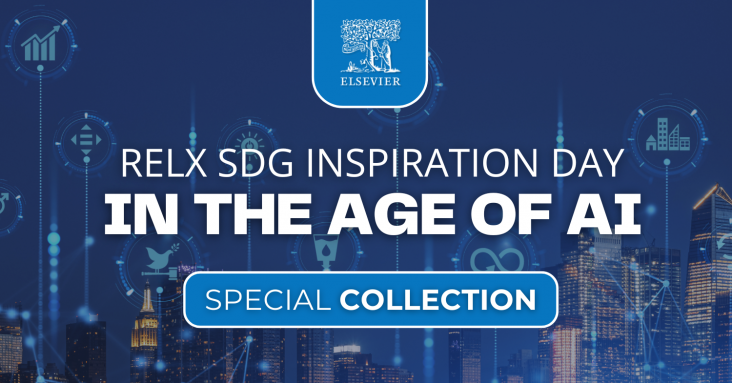Ensure access to affordable, reliable, sustainable and modern energy for all
With evident relevance to SDG 6, the research explores a water pollution control technology evaluation model based on the Pythagorean language neutrosophic set (PLNS) in the context of the pulp and paper industry. The authors' model aims to assist in the choice of appropriate water pollution control technology for those working within the paper industry. It is tested in an example based in China.

This year’s RELX SDG Inspiration Day will bring together global AI leaders, corporate representatives, investors, government, and NGOs to explore issues, gain practical insights and be inspired to take action in support of the Global Goals. Elsevier is proud to share this special collection of articles and chapters in celebration of this event.
In the pursuit of improving engine performance and mitigating emissions, researchers have explored the intriguing domain of fuel blends incorporating butanol and gasoline. This innovative study aims to unravel the intricate dynamics between butanol and gasoline when utilized as a blended fuel in internal combustion engines. The current study integrates cutting-edge techniques such as Artificial Neural Networks (ANN) and Response Surface Methodology (RSM) for the optimization of engine performance.
The research questions explore the recent progress and technological advancements in Wireless Power Transfer (WPT), the reflection of global engagement within the WPT community through publication trends and geographical distribution, and the alignment of thematic clusters with SDG goals. Questions also investigate the contribution of AI to WPT, challenges and barriers to WPT adoption revealed by bibliometric analysis, ways WPT technology can democratize technology access in marginalized regions, and specific recommendations to ensure WPT technologies effectively accelerate progress towards achieving a broader set of SDGs.

World Intellectual Property Day, observed each year on 26th April, is an opportunity to celebrate the contributions made by inventors and creators around the world and to explore how IP contributes
The study forecasts AI-based innovation's impact on SDGs in 22 countries from 2022 to 2030 using System Dynamics Modeling. In most of the 22 countries studied, AI-based innovation positively affects SDGs 1, 3, and 5. For half of the countries studied, AI-based innovation positively influences SDGs 2, 4, 6–8, 11, 13, and 16–17. AI-based innovation does not positively influence SDGs 10, 12, 14–15 for most countries studied.
World Intellectual Property Day 2024 is highlighting the critical importance of intellectual property (IP) in catalyzing the human innovation and creativity needed for achievement of the United Nations Sustainable Development Goals (SDGs). This study provides an overview of the key debates and the recent evidence on the societal role of Intellectual property rights (IPRs).
This research highlights the potential environmental and social impacts of scaling renewable energy technologies that rely on transition minerals, emphasizing the need to study resource frontiers to understand the local consequences of global climate policies. This topic is relevant to the International Day of Indigenous Peoples as it underscores the importance of considering the impacts on indigenous communities and their lands in the pursuit of sustainable energy solutions.
In this paper the authors show how the heterogeneity in cities means that individual cities need specific low-carbon roadmaps, rather than a one-size-fits-all approach
This article supports SDG 7 by evaluating the geothermal potential of the granitic rocks which is important in long-term sustainable renewable energy projects due to increasing energy demand.
